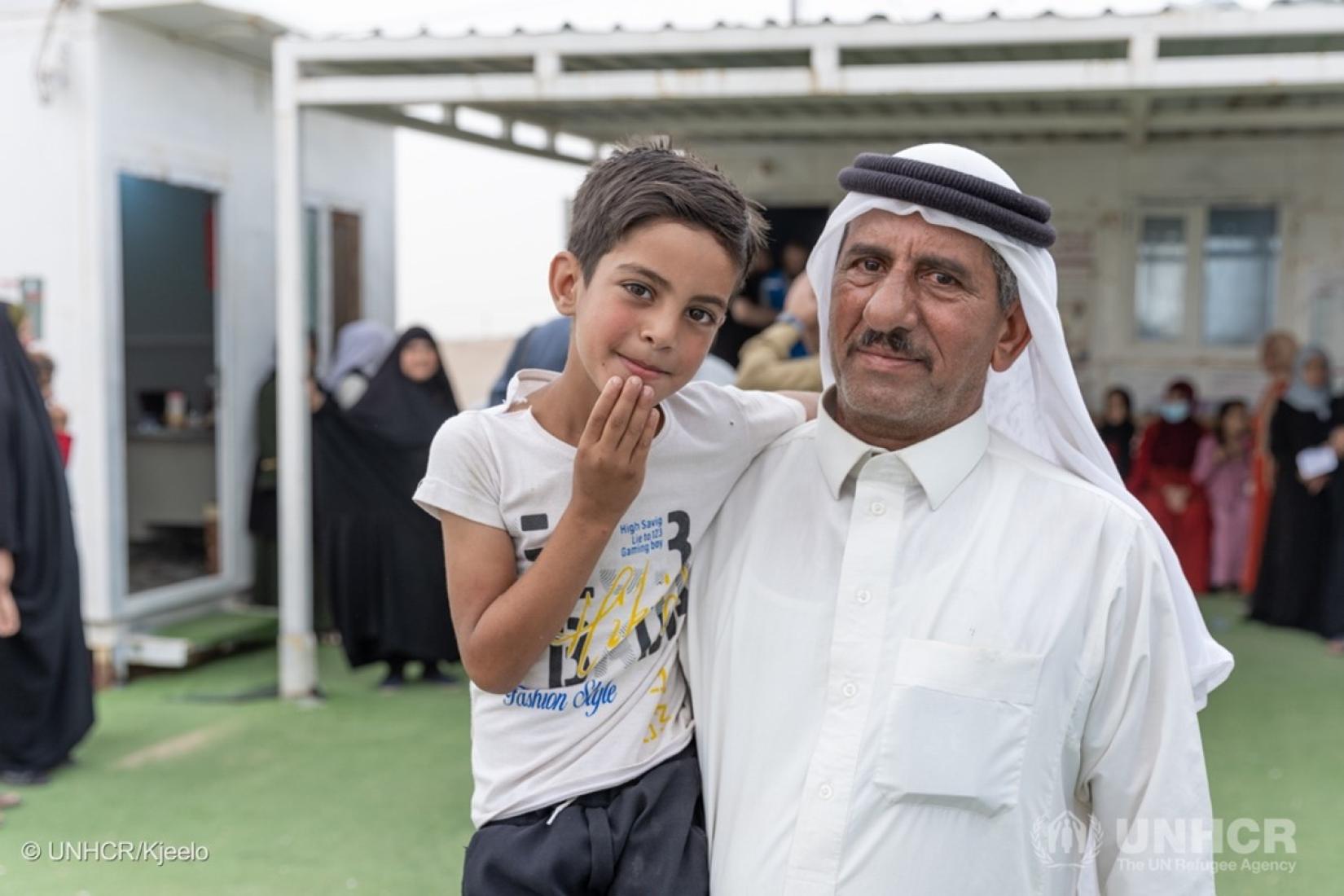Japan funding helps provide critical legal support and assistance to displaced Iraqis and refugees in Iraq
04 October 2023
Baghdad, Iraq: UNHCR, the UN Refugee Agency, welcomes the Government of Japan’s generous support, which helps provide civil documentation to Syrian refugees and Iraqis forcibly displaced by Da’esh violence in Iraq. Without such documentation, vulnerable individuals would be unable to access public services such as health and education, or livelihood opportunities to help them rebuild their lives.

Providing legal assistance to refugees who cannot secure their residency permits in Iraq and to Iraqis who cannot get their national IDs is crucial. Obtaining this documentation is the first step for them to be recognised in the country. It will help them move around safely – without fear of being arrested at security checkpoints – and allow them to receive medical care, register their children in school and apply for social security benefits.
The support of the Government of Japan allows UNHCR to provide thousands of refugees and internally displaced Iraqis with legal assistance. It also helps UNHCR and partners in delivering civil documents to the most vulnerable through mobile missions conducted across the country.
From January to June 2023, UNHCR provided legal assistance for about 6,000 refugees and secured over 13,000 civil documents for internally displaced Iraqis. Furthermore, UNHCR and partners supported 40 mobile civil documentation missions for internally displaced Iraqis who are unable to travel to their areas of origin to obtain civil documents.
However, there are still needs. UNHCR estimates that over 430,000 individuals are still missing at least one core civil document. The main barriers to accessing civil documentation include the high cost of obtaining or renewing these documents and the difficult procedures that it could entail, especially for those being suspected of affiliations with extremist groups such as Da’esh or who are otherwise unable to legally prove their marriage, birth, or lineage in court.
“The partnership with Japan is truly exemplary as it focuses on interventions that are not so visible or easy to explain. But without their identity documents, these Iraqis and Syrian refugees would be completely left out of society and would be deprived of their basic rights. They would not be able to rent a home, enrol their kids in schools or get medical care for their elderly parents. By providing these funds, Japan is making a difference in the daily lives of thousands of families and one that will last beyond the emergency,” said Mr. Jean-Nicolas Beuze, UNHCR Representative to Iraq.
“I commend UNHCR for its efforts on the field," said Mr. Kenichi Masamoto, Charge d' Affaires ad interim, the Embassy of Japan in Iraq. "We understand that refugees and IDPs are supported by the distinguished work of UNHCR to obtain their civil documents again. We strongly believe that UNHCR's work on legal assistance and civil documentation is indispensable for those who have the misfortune to become refugees and IDPs to rebuild their lives, even if it is not really visible intervention.”
Iraq has an internally displaced population of some 1.2 million, while five million have returned to their areas of origin. Iraq also hosts about 300,000 refugees – mostly Kurdish Syrians residing in the Kurdistan Region of Iraq – for whom return prospects remain limited due to the volatile and dire humanitarian and human rights situation in northeast Syria, where they come from.
For media inquiries, contact: irqpi@unhcr.org

